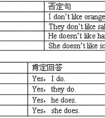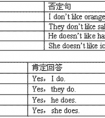短文填空。从下面方框中选出10个单词,并将其正确形式填写在答题卡相应题号的位置上,使短文意思正确通顺(每词限用一次)。(共10个小题,每小题1分;计10分)One day, a stude-九年级英语
题文
短文填空。从下面方框中选出10个单词,并将其正确形式填写在答题卡相应题号的位置上,使短文意思正确通顺(每词限用一次)。(共10个小题,每小题1分;计10分) One day, a student was talking with a professor (教授), who’s kind to those who waited on his 小题1: . As they went along, they saw a pair of old shoes 小题2: on the path (小路), which, they supposed, belonged to a poor man working in a nearby field (田地). He had neatly finished his小题3: work. The student came to a stop, and said to the professor, “Let’s play a hoax on the man: we hide his shoes, hide ourselves and wait to see how 小题4: he would be when he finds that his shoes are 小题5: .” “My friend,” answered the professor, “We should never enjoy ourselves while making the poor sad. Now you are rich, why not give yourself a much greater 小题6: by helping the poor man? Put a coin into each shoe, hide ourselves and see what will happen to him.” The student did so, and they both places themselves behind the nearby trees. After finishing his work, the poor man came across the field to the path. Putting his foot into one of his shoes, he felt something unusual. He took off his shoes and stopped 小题7: what it was and he found the coin. He took out the coin, surprised, and looked at it 小题8: for a while. Then he looked around, but 小题9:was there. Then he started to put on the other shoe. He got much more surprises when he found the other coin. The poor man then looked up into the sky and shouted “Thank You!” The student stood there with tears (眼泪) in his eyes. “Now,” said the professor, “Aren’t you more pleased than if you had played 小题10: planned hoax?” “You’ve taught me a lesson which I will never forget,” answered the student. |
答案
小题1:instruction(s) 小题2:lying 小题3:day’s 小题4:embarrassed 小题5:lost 小题6:pleasure 小题7:to discover 小题8:carefully 小题9:nobody 小题10:your |
试题分析:短文大意:本文介绍了一个学生与教授在交谈,最后学生得到了一个永远不会忘记的教训的故事。 小题1:句意:谁在等候他的指令。所以填写instruction(s)。 小题2:句意:他们一边走,他们看到了一双旧鞋躺在小路上。所以填写lying。 小题3:句意:他干净利落地完成了他一天的工作。所以填写day’s。 小题4:句意:我们把他的鞋藏起来,隐藏自己,等着看他发现他的鞋丢了有多尴尬。所以填写embarrassed。 小题5:句意: 当他发现他的鞋丢了时。所以填写lost。 小题6:句意:现在你很有钱,为什么不通过帮助穷人给自己一个更大的快乐?所以填写pleasure。 小题7:根据上句he felt something unusual.可知此处是说他脱了鞋,停了下来想弄明白是什么,所以填写to discover。 小题8:结合上句He took out the coin, surprised和后面的短语for a while可知此处是说他仔细的看,所以填写carefully。 小题9:结合上句Then he looked around,以及连词but可知此句是说没有人在那里,所以填写nobody。 小题10:句意:如果你玩过你计划的骗局你是不是更高兴?所以填写your。 |
据专家权威分析,试题“短文填空。从下面方框中选出10个单词,并将其正确形式填写在答题..”主要考查你对 实义动词,实义动词的单数第三人称形式,动词短语 等考点的理解。关于这些考点的“档案”如下:
实义动词实义动词的单数第三人称形式动词短语
考点名称:实义动词
- 实意动词:
即行为动词,表示动作的动词。实义动词与系动词是相对的,能独立用作谓语。
它分为及物动词和不及物动词两种:
及物动词是指后面要求有直接宾语的动词;
不及物动词指后面不需要跟宾语的动词。 实意动词使用方法:
及物动词
后面必须跟宾语意义才完整的实义动词,叫做及物动词(transitive verb)。如:
I believe that the committee will consider our suggestion.我相信委员会将会考虑我们的建议。
“How long can I keep the book ?”Harry asked.哈里问:“这本书我可以借多久?”
Dr. Bethune set us a good example. 白求恩大夫给我们树立了好榜样。
Crude oil contains many useful substances.原油含有许多有用的物质。
不及物动词
本身意义完整后面不须跟宾语的实义动词,叫做不及物动词(intransitive verb)。如:
Birds fly.鸟会飞。
It happened in June 1932.这件事发生于一九三二年六月。
My watch stopped.我的表停了。
She spoke at the meeting yesterday evening. 她在昨天晚上的会上发了言。
兼作及物动词和不及物动词
英语里有不少实义动词可以兼作及物动词和不及物动词。这样的动词又有两种不同的情况
a)兼作及物动词和不及物动词时,意义不变。试比较:
Shall I begin at once?我可以立刻开始吗?(begin作不及物动词)
She began working as a librarian after she left school.她毕业后当图书馆管理员。(began作及物动词)
When did they leave Chicago?他们是什么时候离开芝加哥的?(leave 作及物动词)
They left last week. 他们是上周离开的。(left 作不及物动词)
b)兼作及物动词和不及物动词时,有时意义不尽相同。如:
Wash your hands before meals.饭前要洗手。
Does this cloth wash well? 这布经得起洗吗?- 英汉实意动词用法比较:
与汉语的比较,有时英语动词的及物和不及物的用法,与汉语的用法不一样,请注意下列两种情况:
a)有的动词在英语里只能用作不及物动词,而汉语则可用作及物动词,如arrive到达,agree同意,listen听。英语里这些动词后面常接介词。如:
We arrived at the railway station at noon.
我们于中午到达火车站。(at不能省去)
(比较:We reached the railway station at noon.)
Everybody listened to the lecture with great interest.
每个人都很有兴趣地听讲课。(to不可省去)
(比较:We all heard the lecture.)
Do they agree to the plan?他们同意这个计划吗?(to不可省去)
b)有的动词在英语里能用作及物动词,而在汉语里则不能用作及物动词,如serve为…服务。
Our children are taught to serve the people wholeheartedly.
我们的儿童被教以全心全意为人民服务
用于be动词之后,实义动词之前。 实意动词的用法:
肯定句:
主语+动词过去式+其它
否定句:
主语+助动词didn‘t+动词原型+其他
一般过去式:
Did+主语+动词原型+其他
考点名称:实义动词的单数第三人称形式
- 最新内容
- 相关内容
- 网友推荐
- 图文推荐
| [家长教育] 孩子为什么会和父母感情疏离? (2019-07-14) |
| [教师分享] 给远方姐姐的一封信 (2018-11-07) |
| [教师分享] 伸缩门 (2018-11-07) |
| [教师分享] 回家乡 (2018-11-07) |
| [教师分享] 是风味也是人间 (2018-11-07) |
| [教师分享] 一句格言的启示 (2018-11-07) |
| [教师分享] 无规矩不成方圆 (2018-11-07) |
| [教师分享] 第十届全国教育名家论坛有感(二) (2018-11-07) |
| [教师分享] 贪玩的小狗 (2018-11-07) |
| [教师分享] 未命名文章 (2018-11-07) |


![How much does it ______ to fly from Yancheng to Hainan Island?[ ]A. cost B. payC. spend D. take-七年级英语](http://www.00-edu.com/d/file/ks/4/2/shiyidongci/2020-01-05/small7dcf2f05998de63e10cc3629787031c81578210087.png)

![He always _____TV in the evening. He _____ listening to the radio. [ ]A. watch, don't like B. watches, doesn't like C. watching, don't like D. watch, do-七年级英语](http://www.00-edu.com/d/file/ks/4/2/shiyidongci/2020-01-05/small45d599b4a60b84e61cec210bfbf051f51578214524.png)
![I'd rather ___ to the Mcdonald's Restaurant because I like to listen to quiet music.[ ]A. to go B. going C. go D. went-八年级英语](http://www.00-edu.com/d/file/ks/4/2/shiyidongci/2020-01-05/small1767bba1727fef2c035c53dcbd9bc20e1578209517.png)
